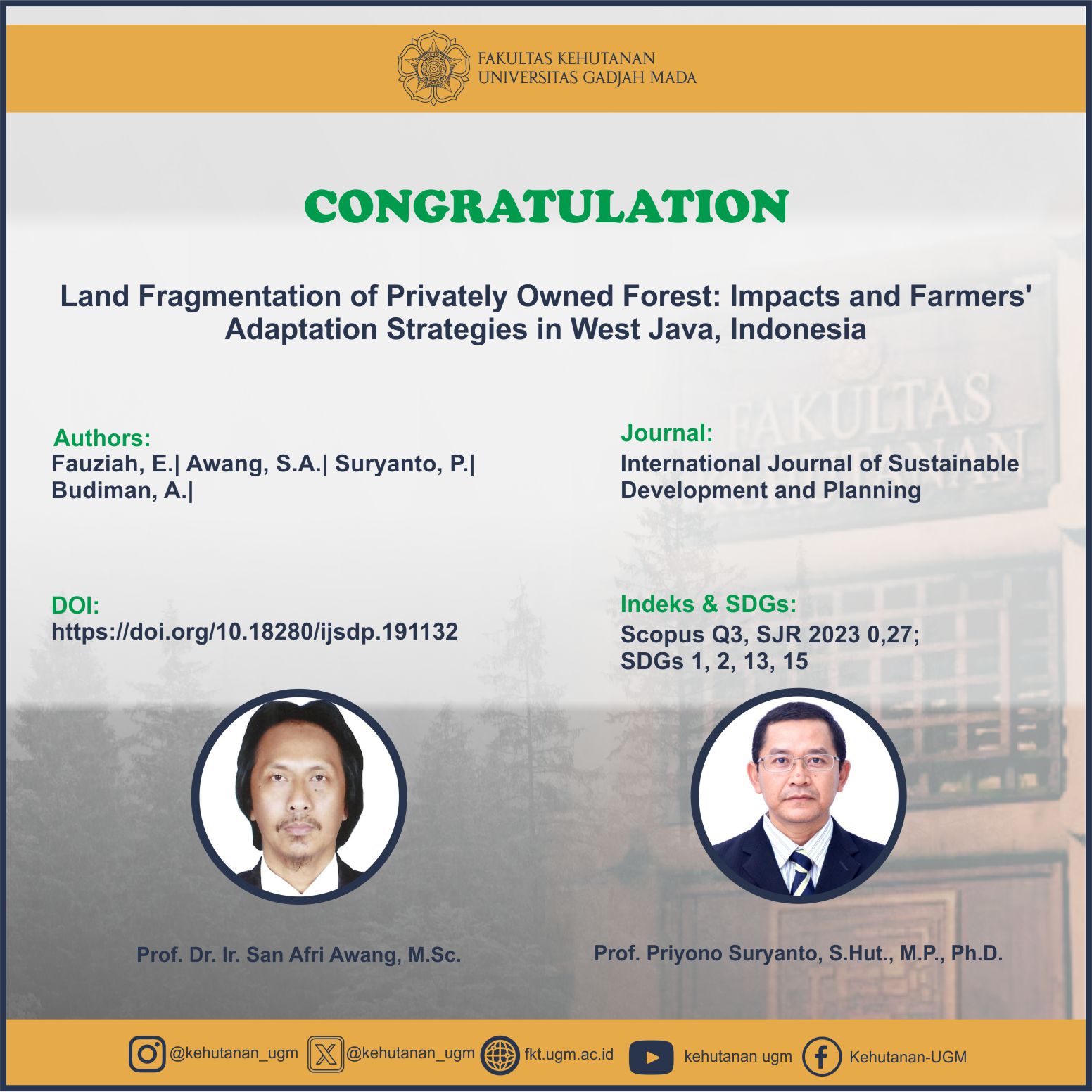
Abstract
Population growth requires the use of more land, which increases land fragmentation. This study aims to understand the impacts and adaptation strategies of farmers facing privately owned forest land fragmentation (POF-LF). The research was conducted in Ciamis Regency, West Java, Indonesia. Data were collected through structured questionnaires for a simple random sample of 170 respondents, as well as in-depth interviews. The data obtained were processed by calculating the fragmentation index and descriptive statistical analysis. The results show that POF-LF is present in all the research sites. High levels of fragmentation were found in areas with large landholdings, while areas with small average landholdings had low levels of land fragmentation. POF-LF is dominated by the inheritance process to meet the needs of children or due to children marrying. The most significant impact is the small size of landholdings, which can lead to uneconomical and inefficient management, thereby reducing productivity and income. The most common adaptation strategy of farmers to the decline in land ownership is to change the structure of household income and to change the type and pattern of crops on their land. All information from this study can be used by relevant stakeholders, especially policy makers, to promote the development of POF through policy interventions.
SDGs:
SDG 1:No Poverty
SDG 2:Zero Hunger
SDG 13:Climate Action
SDG 15:Life on Land
Link Dokumen:
Download
